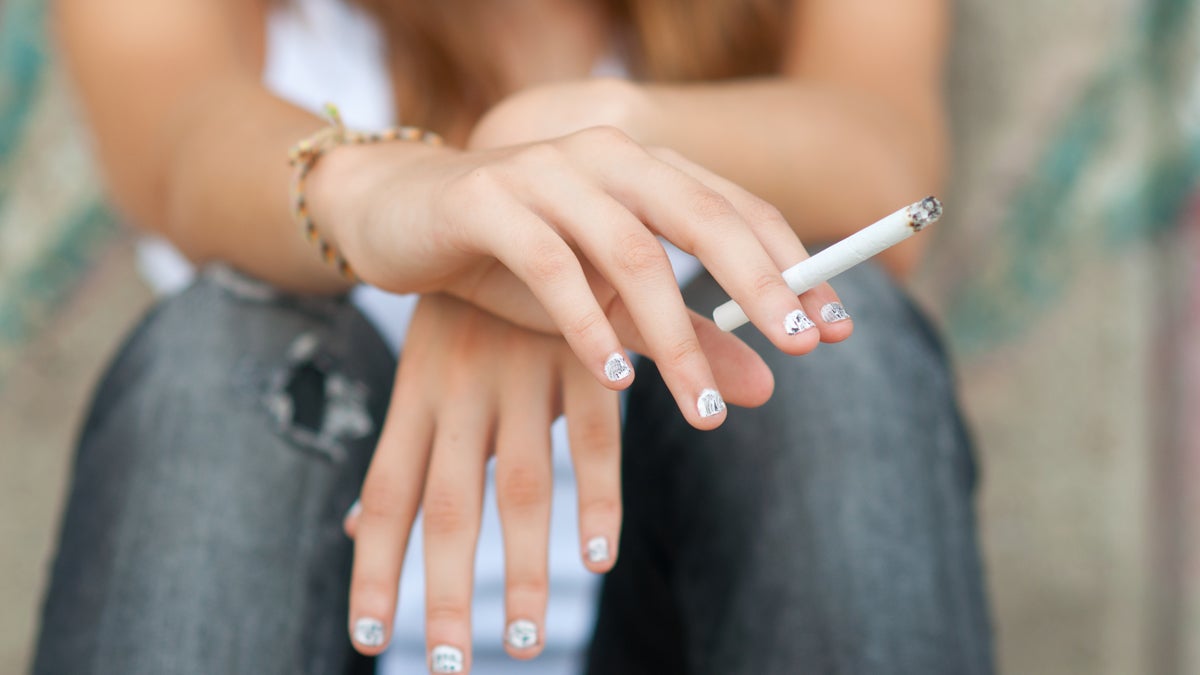Higher-risk teen girls anxious about breast cancer, Philly researchers find
Listen Photo via ShutterStock) " title="ssteensmokerx1200" width="1" height="1"/>
Photo via ShutterStock) " title="ssteensmokerx1200" width="1" height="1"/>
(Photo via ShutterStock)
New research suggests many teen girls at higher risk for developing breast cancer one day are already anxious about it.
Parents often share news of diseases that run in the family with their children so they’re aware and can make healthy choices. But how do teens handle that information?
New research by scientists at the University of Pennsylvania and the Children’s Hospital of Philadelphia suggests many teen girls at higher risk for developing breast cancer one day are already anxious about it.
University of Pennsylvania breast oncologist Angela Bradbury said in her survey of teen girls, those in families with a history of breast cancer were nearly three times as likely to worry about their risk of developing the disease.
Not all of that worry is necessarily bad — it might lead the girls to be proactive and try to exercise more, for example. But the results suggest that at least some of that anxiety is leading to harmful health choices. The higher-risk girls were more than twice as likely to have tried cigarettes.
“What you do as an adolescent, as far as tobacco, alcohol, whether it be a risk behavior or a healthy behavior — if those get solidified during adolescence, they’re going to be much harder to break in adulthood,” said Bradbury.
The results are preliminary, but the team is looking for ways to channel the anxiety in positive directions, said co-author and CHOP psychologist Lisa Schwartz.
“It will be just really critical to capitalize on the increased worry that these girls have and to turn it into something positive,” she said. “Hopefully, to help them understand that even though they’re worried, they do have some control over their health.”
One possible intervention, Schwartz said, might be text messages to encourage healthy behavior. Bradbury adds that because girls take cues from their moms about how worried to be, giving information to mother-daughter pairs might help.
WHYY is your source for fact-based, in-depth journalism and information. As a nonprofit organization, we rely on financial support from readers like you. Please give today.

